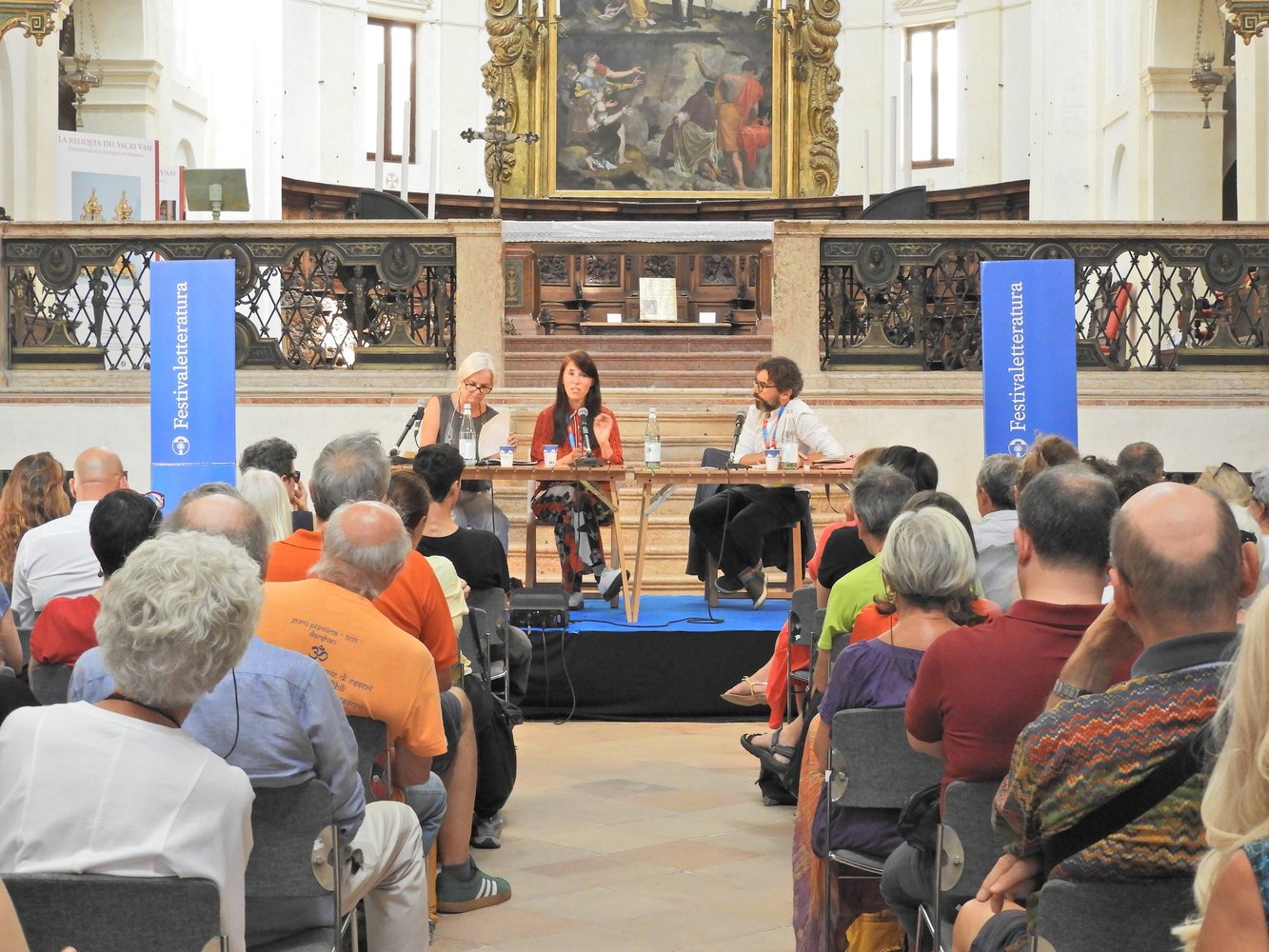



On Behalf of the Animals
Animals have long been disregarded in matters of philosophy. Aristotle named us animals - the zoon politikon - only to differentiate us based on our political capacity. Kant held that animals were inferior due to their lack of reasoning. Eva Meijer refutes both distinctions.
It is a suffocating afternoon. The heat encroaches on the Basilica Palatina. It is an apt metaphor for Meijer’s talk, centred around the inevitability of the natural world’s place within our human one. The question she hangs this discussion on is: Can animals be part of the body politic? Not dissuaded by the gleeful, joking murmur of the crowd, Meijer clarifies: "I know. This is strange." What follows is a tour de force through animals’ very real and very present political capacity: the African Wild Dog which sneezes to vote on their new resting ground, the African Buffalo which moves and lie down to cast their votes, or fruit bats which do not only communicate with each other but also gossip. In these anecdotes, Meijer humanises the animal world. Or rather, she removes the veneer of singularity from human behaviour.
A quick exam and human domination, key to Western philosophy, becomes untenable. We cannot sustain the human's unicum when our environment rests on such precarity, Meijer states. We must, she implores, start to conceive of multispecies justice and coexistence. The language of morality has so long been placed in the context of humans. Yet animals too are moral beings. Meijer leads with another anecdote of her 25 mice which she keeps as pets, all lab rescues. This elicits the same humoured murmurs from the crowd before they are left in humbled surprise at what she reveals. The mice congregated to bury one of their dead, under the newspaper shreds of their enclosure. Community, empathy: morality.
We must begin to see animals as fellow political beings. Whether from the religious perspective of Christian stewardship, Indigenous monism or merely pragmatic, scientific survival, the future of this planet depends on this more-than-human rapport. It's not Meijer's wish to terrorise us with apocalyptic warnings. Rather, she aims to inspire us: "It’s not about giving up, but gaining".